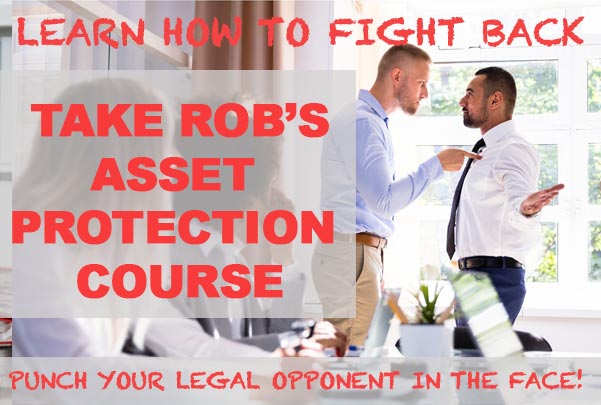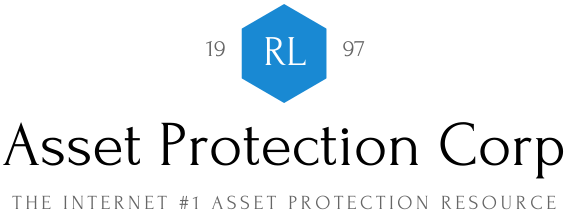Pure Trust scams
If you search the internet, you’ll turn up hundreds of pages of information from sites that offer to sell you information on how to set up your own “pure trust” without having to use an attorney. (who, by the way, would inform you that it’s nothing but a scam).
The Pure Trust, which is also known as a common law or constitutional trust, is so outrageous that it would be laughable if the results weren’t so disastrous:
You could spend anywhere from hundreds to thousands of dollars to set up a pure trust that has no legal or financial value.
If the Internal Revenue Service (IRS) caught on while you’re alive, you would wind up having to pay all back taxes, interest and penalties on undeclared income because you were under the assumption it belonged to the trust.
If you pass away before the IRS or your creditors challenge your trust, your heirs will receive the unpleasant news, before they get a cent, that all the taxes, interest and penalties you avoided paying during your lifetime will be taken out of your estate.
You owned all the assets in your pure trust, so they have to go through probate. Along with that, your creditors get a shot at them and they are subject to estate taxes.
How did this pure-trust hoax become so widespread? Through the internet. Although the IRS has made rulings on pure trusts since the 1980s, it has only been in the last few years that pure-trust promoters have hit the mother lode by fishing online for the unsuspecting “mark.”
The scammer’s websites assert that pure trusts are perfectly legal and work because the U.S. Constitution says that no State can impair the “obligation of contracts.” This is true. However, the federal government can and does regulate contracts.
All you’ll ever receive from pure trust promoters are empty promises. Here are some of the promises given that have been found on the websites:
Promise: Your pure trust is completely exempt from taxes. You won’t be obligated to pay a gift tax when you transfer assets into the trust. The pure trust will never owe any income tax, and no estate tax will be imposed on the trust at your death
Fact: This is true, because your pure trust does not exist as a legal entity. Simply put, it’s not a trust. As explained by the IRS: “A so-called pure trust is an arrangement purporting to create a separate entity without actually altering the taxpayer’s control over the property or business transferred to the pure trust. In general, the trust issues certificates representing ownership of the trust . . . The pure trust may be treated as a sham for federal tax purposes depending on the trust terms and its actual operation. Therefore, the taxpayer who transfers property or business to the trust must report all the income earned by the trust and is liable for the taxes.”
So, let’s say that you purchase the documents, set up your pure trust, change the owner’s of your assets to the trust, and it’s all for naught, because you’re still the legal owner. You’re not giving assets away, so there’s no gift tax. You’ll be the one owing income tax, not the trust. And, at the time of your death, there won’t be any estate imposed on the trust, because the trust doesn’t exist.
Promise: You won’t need a separate Social Security number, so your assured of secrecy for assets in the trust.
Fact: This is true, but that’s because the trust doesn’t exist. You own all the assets, so they will show up on all of your credit reports. Many of these websites issue their own “identification number,” which has the same number of digits as a Social Security or taxpayer identification number. This probably would encourage unsuspecting pure-trust grantors to use this fake number as the tax-reporting number when they fill out account forms for their new trust. Doing so constitutes criminal tax fraud and opens up the possibility of prosecution and jail time.
Promise: The IRS has sent out letters saying that pure trusts are “totally tax exempt.”
Fact: Once again, this is true! A letter which has been displayed on several websites reads, “We cannot process your application for an Employer Identification Number. A pure-trust organization has no tax requirements. Therefore, an Employer Identification Number is not required.”
The pure trust has no tax requirements because it doesn’t exist as a separate legal entity. It’s something akin to a man setting up an account using his nickname “Bobby,” instead of his legal name “Robert.” He’s the same person and he has the same Social Security number. He can’t get a separate Social Security number for “Bobby Farnsworth” because he is not a separate person or legal entity from Robert Farnsworth.
Promise: Your creditors or, if your getting divorced, your soon to be ex-spouse can’t get at the assets in your pure trust.
Fact: This statement is true, but only because there are no assets in your trust. You own the assets, so your creditors or divorcing spouse would come after you instead.
Promise: Your pure trust is not accountable for your debts and you aren’t responsible for any liabilities incurred by the pure trust.
Fact: Again, it’s true! But, as it’s been already been explained, this is because the trust doesn’t exist, therefore it can’t be liable for your debts. You aren’t held to be accountable for any liabilities that were incurred by the pure trust, because the trust can’t incur any. If some lender were foolish enough to lend money to the trust, the money would be redeemed by the discovery that, in fact, you’re responsible.
A 1997 an Internal Revenue Service Notice on Abusive Trust Arrangements (97-24) addresses pure trusts in detail. The proliferation of pure-trust websites is causing the IRS to sit up and take notice, and now the agency is actively pursuing these operators.

Trust scams and scammers
-
Abusive Trusts: Someone will have to pay the taxes!
- Pure Trust scams
- IRS targets five illegal trusts
- Constitutional Trusts and Pure Trust scams
- Legal principles that are applicable to trusts
- IRS cracking down on trust scammers
- Abusive Trust arrangements
- Examples of Abusive Trust arrangements – Part One – The Business Trust
- Examples of Abusive Trust arrangements – Part Two – The Equipment or Service Trust
- Examples of Abusive Trust arrangements – Part Three – The Family Residence Trust
- Examples of Abusive Trust arrangements – Part Four – The Charitable Trust
- Examples of Abusive Trust arrangements – Part Five – The Final Trust
newsletter signup
[forminator_form id=”1485″]

FIGHTING BACK!
